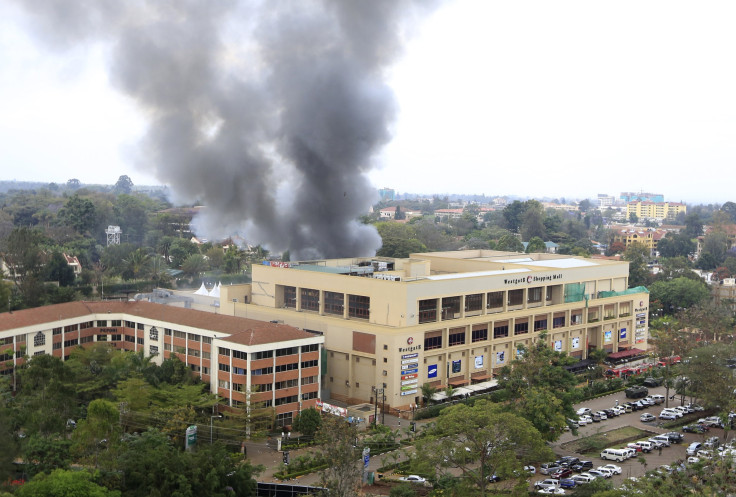Kenya Calls US Travel Warning ‘Uncalled For, Unnecessary And Unfriendly’

Kenya spent the past week laying out all the reasons why travel warnings would only make a bad situation worse, but that didn’t stop the U.S. from issuing a fresh advisory Friday in response to the deadly standoff between government forces and Somali terrorists at an upscale Nairobi mall that left 67 people dead and 240 others injured.
Among those killed were citizens of Australia, Britain, Canada, China, Ghana, France, the Netherlands, Peru and South Africa. Responsibility for the attack was claimed by the Islamist militant group al-Shabab. The conflict began on Sept. 21 and turned into a four-day siege.
“U.S. citizens in Kenya, and those considering travel to Kenya, should evaluate their personal security situation in light of continuing and recently heightened threats from terrorism and the high rate of violent crime in some areas,” the U.S. State Department advised in its travel warning.
“The U.S. government continues to receive information about potential terrorist threats aimed at U.S., Western, and Kenyan interests in Kenya, including in the Nairobi area and in the coastal city of Mombasa,” the warning continued. “Terrorist acts can include suicide operations, bombings, kidnappings, attacks on civil aviation, and attacks on maritime vessels in or near Kenyan ports. Although the pursuit of those responsible for previous terrorist activities continues, many of those involved remain at large and still operate in the region.”
The State Department acknowledged that the levels of risk vary throughout the country, and said it did not restrict its embassy employees from traveling to the nation’s most popular tourist destinations such as Masai Mara, Amboseli, Lake Nakuru, Tsavo, Hell’s Gate, Samburu, Mount Kenya and Malindi.
Kenya Interior Minister Joseph Ole Lenku called on the U.S. to lift its warning over the weekend, telling a crowd gathered for a press conference on the mall attack that it was like a slap in the face from a friend. Kenya is seen as one of the West’s biggest African allies in the fight against terrorism.
“We are concerned by the advisory which is uncalled for, unnecessary and unfriendly ... We believe issuing the travel advisory is counterproductive in the fight against global terrorism,” Ole Lenku said. “There have been numerous terror attacks around the globe and traditionally, friendly countries have not done anything to increase the pain of the victim country.”
Tourism is Kenya’s second-largest source of foreign revenue and one of its largest employers, particularly in rural areas. The industry brought in $1.2 billion last year and employed some 150,000 people, but remains extremely vulnerable to security threats.
Most nations already advise citizens against all but essential travel near Kenya’s volatile border with war-ravaged Somalia. The former prime minister and leader of the opposition, Raila Odinga, pleaded with global leaders via Twitter and other media last week not to issue stricter warnings covering Nairobi and other destinations popular with foreigners:
This is not the time to issue travel advisories. Terrorism is a global challenge that we must meet as a united front.
— Raila Odinga (@RailaOdinga) September 22, 2013
The attack on the upscale Westgate shopping mall played out in the background as hundreds of members of the international travel and tourism industry converged in Nairobi for both the Africa Hotel and Investment Forum and the Ecotourism and Sustainable Tourism Conference. Both events went on as scheduled, as industry leaders signaled their ongoing support for Kenya and its nascent tourism sector.
U.N. World Tourism Organization Secretary-General Taleb Rifai urged the international community to stand with Kenya as it moves forward from tragedy. “Kenya is a leading tourism destination which has before shown the extraordinary resilience of its tourism sector,” he said in a statement released by Kenya’s tourism board. “Tourism is one of the backbones of Kenya’s society and economy, and it is now more important than ever to support the tourism sector in Kenya.”
Travel warnings in the wake of the 1998 bombing of the U.S. Embassy in Nairobi brought tourism in Kenya to a trickle, and it took a decade for the East African nation to get back on track. Numbers grew by 50 percent each year thereafter, according to government figures, until a spate of kidnappings in 2011 near the coastal resort of Lamu once again scared visitors away. It was these kidnappings that, in part, prompted Kenya to send government troops into Somalia to aid in the war against al-Shabab. And it was its effort in the war in Somalia that likely led to the retaliatory attacks last week.
© Copyright IBTimes 2024. All rights reserved.






















